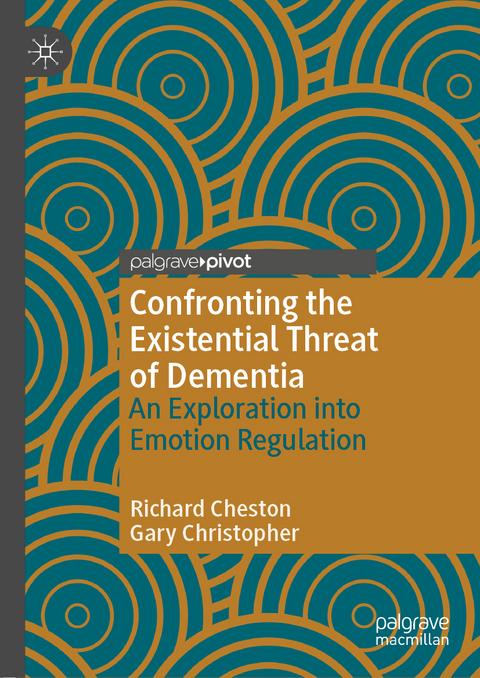
Confronting the Existential Threat of Dementia
Springer International Publishing (Verlag)
978-3-030-12349-9 (ISBN)
This book explores how dementia acts as an existential threat, both to people diagnosed with the condition, and to their carers. The authors highlight how dementia not only gradually erodes our most fundamental abilities, but that it does so at a time of life when the resources of individuals, couples, and families are already stretched. While over time many people who are living with dementia are able to adapt to their diagnosis and acknowledge its impact on them, for many others it remains too threatening and painful to do this.
The book draws on examples from clinical practice and experimental studies to argue that a range of responses, such as searching for long-dead parents or clinging to previous identities, all represent ways in which people living with dementia attempt to protect themselves against the emotional impact of the condition. Finally, the authors set out new ways of intervening to boost psychological resources and thereby support people in facing the existential threat of dementia.
Richard Cheston is Professor of Dementia Research at the University of the West of England, UK, and worked as a clinical psychologist in the National Health Service for 25 years. He continues to work clinically with individuals and families living with dementia at the RICE memory clinic in Bath, UK. Gary Christopher is a senior lecturer at the University of the West of England, UK, and leads the Ageing Well theme of the Psychological Sciences Research Group there. He has published widely on mental health, although his primary research focus is the impact of ageing on cognitive functioning, and in particular, emotion regulation in dementia.
Chapter One: Introduction.- Chapter Two: Dementia in Context.- Chapter Three: Dementia as an existential threat.- Chapter Four: Dementia and Relationships.- Chapter Five: Identity and self-esteem.- Chapter Six: Being the same but different - creating meaning from dementia.- Chapter Seven: Defending against the threat of dementia.- Chapter Eight: Increasing recall without increasing distress.- Chapter Nine: An existential approach to dementia.
"I would thoroughly recommend this book to other professionals working in dementia care. ... I also think there are additional benefits to taking an existential approach. This highlights important clinical implications to help individuals adjust to a diagnosis of dementia and their ability to live as well as possible by strengthening psychological resources such as self esteem and social connectedness." (Gillian Bowie, FPOP Bulletin, Issue 149, January, 2020)
“I would thoroughly recommend this book to other professionals working in dementia care. … I also think there are additional benefits to taking an existential approach. This highlights important clinical implications to help individuals adjust to a diagnosis of dementia and their ability to live as well as possible by strengthening psychological resources such as self esteem and social connectedness.” (Gillian Bowie, FPOP Bulletin, Issue 149, January, 2020)
| Erscheinungsdatum | 29.06.2019 |
|---|---|
| Zusatzinfo | IX, 141 p. 1 illus. |
| Verlagsort | Cham |
| Sprache | englisch |
| Maße | 148 x 210 mm |
| Gewicht | 329 g |
| Themenwelt | Geisteswissenschaften ► Psychologie ► Sozialpsychologie |
| Medizin / Pharmazie ► Medizinische Fachgebiete ► Psychiatrie / Psychotherapie | |
| Schlagworte | Alzheimer's • Alzheimer’s • dealing with dementia • Defence Strategies • emotional distress • Emotion Regulation • Existentialism • HIV • Parkinson's • Parkinson’s • progressive incurable disease • psychological threat • Social Psychology • Terror Management Theory • Vascular |
| ISBN-10 | 3-030-12349-9 / 3030123499 |
| ISBN-13 | 978-3-030-12349-9 / 9783030123499 |
| Zustand | Neuware |
| Informationen gemäß Produktsicherheitsverordnung (GPSR) | |
| Haben Sie eine Frage zum Produkt? |
aus dem Bereich


